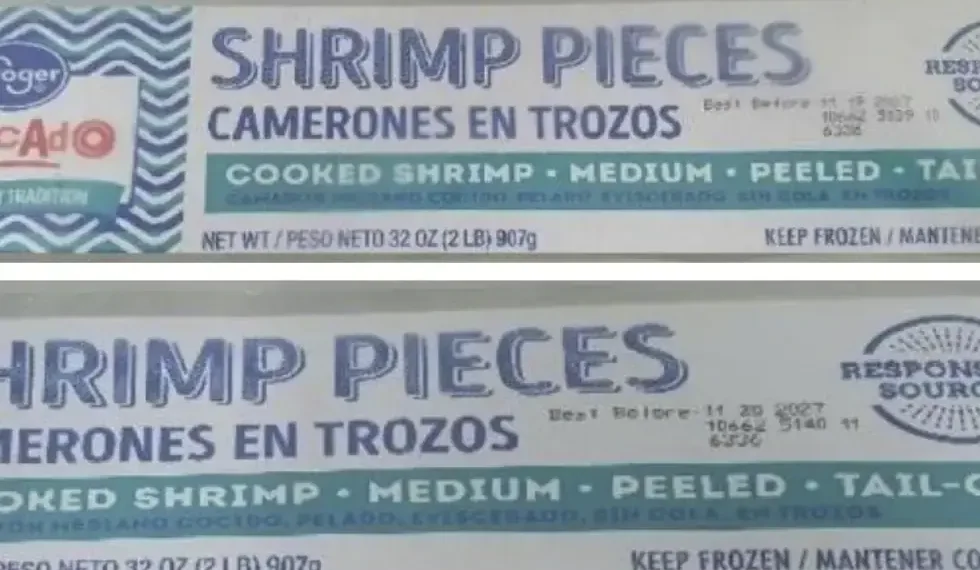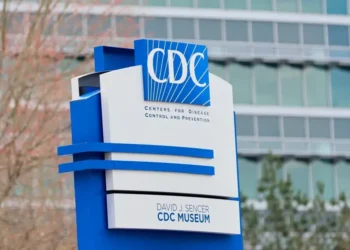Radioactive Metal at Indonesian Facility Under Investigation for Contaminating U.S.-Bound Shrimp
Published Time: 09-06-2025, 10:15 EDT
Radioactive contamination at an industrial site in Indonesia may be responsible for recent massive recalls of frozen shrimp imported to the United States, international nuclear safety officials report. The contamination has prompted regulatory agencies to halt further shipments while investigating the source.
Radioactive Cesium Detected at Processing Plant
The International Atomic Energy Agency (IAEA) confirmed that Indonesian nuclear regulators detected Cesium-137, a radioactive isotope, at a seafood processing facility in Serang, west of Jakarta. The plant exported millions of pounds of frozen shrimp to the U.S.
“Preliminary information suggests that it may have originated from activities at a metal melting facility at the same industrial site or from the disposal of scrap metal to other areas of the site,” said IAEA spokesperson Fredrik Dahl in a statement.
No U.S. investigators have yet visited the site, federal authorities said.
Massive Shrimp Recalls Underway
The exporter, PT Bahari Makmur Sejati (BMS Foods), has voluntarily recalled over 300 shipping containers already en route to U.S. ports, Dahl added.
The U.S. Food and Drug Administration (FDA) reported last month that Cesium-137 was detected in shipping containers arriving at four U.S. ports and in a sample of imported frozen shrimp. This prompted widespread recalls from major retailers, including Walmart and Kroger.
This week, Tampa Maid Foods LLC of Florida issued additional recalls for breaded butterfly shrimp sold under labels such as Admiral of the Fleet and Portico Seafood Classic.
“None of the shrimp that triggered alerts or tested positive for Cesium-137 was released for sale,” the FDA said. However, other shipments may have been processed under conditions that allowed for potential contamination.
Health Risks and Regulatory Response
Although the risk to the public appears limited, the FDA warns that long-term exposure to low levels of Cesium-137 could pose potential health concerns. To prevent further contamination, the agency issued an import alert for shrimp from BMS Foods.
Records indicate that the company exported roughly 12 million pounds of shrimp to ports in Los Angeles, Houston, Miami, and Savannah, Georgia, during July and August, according to U.S. Customs and Border Protection (CBP) data analyzed by trade firm Import Genius.
CBP alerted the FDA about the possible radioactive contamination in multiple shipping containers. In response, the National Nuclear Security Administration (NNSA) has deployed emergency teams to isolate and assess Cesium-137 levels, according to a U.S. Energy Department spokesperson.
Cesium-137 Levels and Expert Insights
The detected Cesium-137 concentration in shrimp measured approximately 68 becquerels per kilogram, significantly below the FDA’s threshold of 1,200 becquerels per kilogram that would necessitate health protections.
“It’s unusual to see that concentration of Cesium-137 in shrimp,” said Steve Biegalski, a nuclear medicine expert at the Georgia Institute of Technology.
Experts suggest the contamination could originate from recycled medical equipment containing Cesium-137. Historically, the isotope has been used in medical devices for blood sterilization and cancer treatment. If not properly removed during recycling, the radioactive material could inadvertently enter the environment.
“If they get broken up in some sort of crushing mechanism, then all of a sudden, it’s basically a salt,” Biegalski explained. “It would be like you taking a giant salt shaker and spreading it all over the kitchen floor.”
Containment and Cleanup Efforts
Containing and mitigating radioactive contamination requires specialized training and procedures. Experts emphasize the importance of tracking, isolating, and safely cleaning up the affected site to prevent further exposure.
“It needs to be tracked down, isolated and cleaned up,” Biegalski said, highlighting the urgency of managing radioactive material safely.
U.S. and international authorities continue to monitor the situation closely, coordinating with Indonesian regulators to ensure that further shipments are halted and contaminated sites are properly secured.
Global Implications
This incident underscores the risks associated with global seafood supply chains and the importance of strict safety protocols for imported food products. While the immediate health risk to consumers appears low, ongoing monitoring and rigorous enforcement remain essential to prevent future contamination.
Authorities are urging vigilance in industrial recycling practices and nuclear material handling, especially when such materials may intersect with food processing operations.
This article was rewritten by JournosNews.com based on verified reporting from trusted sources. The content has been independently reviewed, fact-checked, and edited for accuracy, neutrality, tone, and global readability in accordance with Google News and AdSense standards.
All opinions, quotes, or statements from contributors, experts, or sourced organizations do not necessarily reflect the views of JournosNews.com. JournosNews.com maintains full editorial independence from any external funders, sponsors, or organizations.
Stay informed with JournosNews.com — your trusted source for verified global reporting and in-depth analysis. Follow us on Google News, BlueSky, and X for real-time updates.














